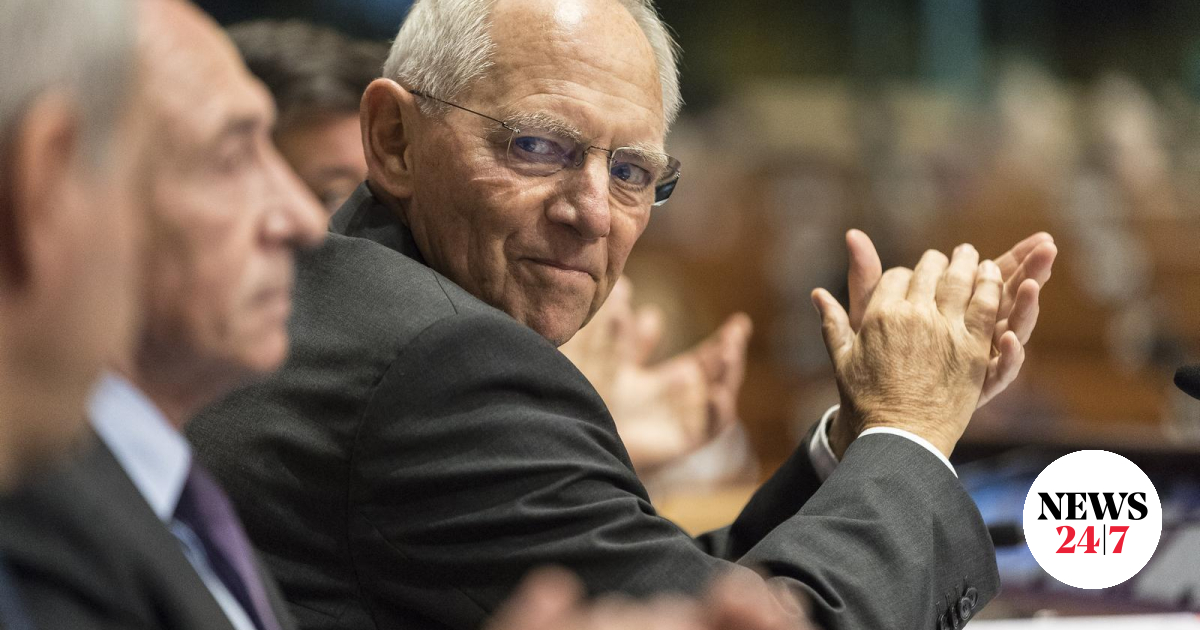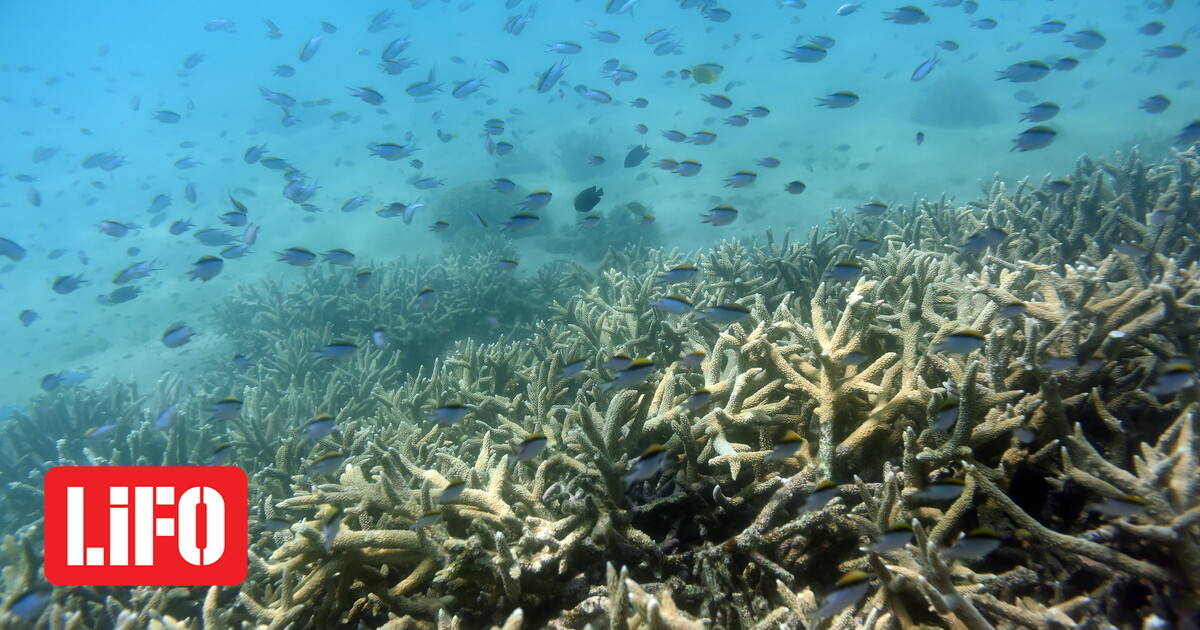
Revealing, honest, practical, insightful, acerbic, stubborn, but not narcissistic – He admits his defeats, always behind the advisor. This is how Wolfgang Schäuble appears in his memoirs entitled “Memories. My Life in Politics”, published today by Klit Kuta Publishing House
His truth and political image, as he himself would like to record it in history. But it is not cosmetic and perhaps this is what causes the sensation, but we are fully aware that it is often annoying but also necessary.
As you write Deutsche WelleThrough his memoirs, written with the help of two historians, Jens Haack and Hjalmar Sack, in his parliamentary office, he defines his political life as his purpose of existence, wanting to go down in history primarily as a loyal European at all costs, a servant of German unity, a Christian Democrat who never betrayed the party. A hothead and a struggling MP in his last preferred seat in Parliament. He speaks openly about everyone and everything and admits it He was never 'someone in Merkel's inner circle'But he believes she is better suited for the position of chancellor.
But she did not betray him in the end either, despite strong disagreements on economic and European policy issues. Angela Merkel did not betray, as Schäuble says, even the big secret related to his health, which no one knows except his family. Thus it was revealed after his death in 2006 Wolfgang Schäuble was diagnosed with prostate cancer And that for seventeen years he fought a fierce battle for survival without anyone knowing, with shocking revelations even regarding serious events related to his health during the Euro groups crucial to Greece. Merkel never said anything.
Related articles
The first bailout plan for Greece
In Schäuble's memoirs, a huge chapter of about 100 pages is devoted to his years as finance minister from 2009 to 2018: the international financial crisis after the collapse of Lehman Brothers, the euro crisis and especially the Greek crisis, which were “identified” with his office. At Wilhelmstraße 97.”A date with globalization. “As Minister of Finance in the heart of new crises” is the title of the controversial chapter that starts from the first lines with Greece: “A few days before assuming my duties at the end of October 2009, the Greek Minister of Finance said: Giorgos Papakonstantinou, who also admitted as soon as he took office, that the Greek government The former, using falsified data, deceived the partners into joining the euro (…) revealing that the country was living beyond its means and that there was a great need for unification (…) Since the spring of 2010, Greece has been no longer able to finance itself on the markets. There was a risk of bankruptcy»
Schäuble recalls that while he was in his private home sick with a high fever in May 2010, Angela Merkel called him from Moscow. “On Sunday, I will travel to Brussels to attend the Eurogroup, where the emergency finance ministers of member states will meet to approve a $110 billion aid program for Greece (…) The Chancellor conveyed to me the concern of international partners that the Greek crisis could affect the entire euro area.” . Schaeuble says China was among the international partners. At the same time, his health condition was deteriorating. The extraordinary Eurogroup's accidental arrival in Brussels was just a “taste of the wild years ahead”. He also reveals: “On Sunday, I traveled on an Air Force plane to Brussels despite all medical reasons. My wife accompanied me for precautionary reasons.”
Immediately after arriving in Brussels, he was taken to the emergency room of a Brussels hospital only to hear: “Mr. Schäuble, you are very ill.” Between the hospital and the Eurogroup“After those painful and nerve-wracking days, Greece was bailed out for the time being, financial markets were fairly calm, the ruling coalition was grumbling and the opposition was praising the bailout. However, it remains to be proven whether the measures are sustainable (…) My returning wife accompanied me again, carrying a bottle of medical infusion, which she tied with a string inside the plane. I will never forget the image: While my health was hanging by a thread, the stability of the euro and with it the future of Europe was hanging by a thread.'” Schäuble describes 2010 as a “terrible year.” For Greece and its health.
Suggestion for a time out at Greek dinner
Schäuble goes frame by frame through the entire record of the Greek crisis with all the technical details about the bailout packages, the decisive euro group, the anxiety in Berlin, but also the hostile image that was beginning to form for Germany in Greece, where at the same time society was boiling and the political scene was witnessing unprecedented turmoil. . Schäuble says: “From the beginning of the crisis, I was one of those who wanted to help the Greeks get out of the unstable situation in which they found themselves, a situation that later faded due to developments (…) On the other hand, Merkel insisted from the beginning on involving the International Monetary Fund in European crisis management policy».
Then, he recalls, the Greeks blamed Brussels and Berlin for “draconian” austerity measures. “It is the usual blame game that the Greeks knew how to play with great success.” At another point he said dramatically: “My image as a ‘wild dog’ in the European negotiations did not bother me. At least it was clear that I was defending the future of Europe. After all, the crisis is no longer just about Greece, it is about the European project. But that is Exactly why I felt pained by the distorted image of the “executioner” of the European idea that critics presented to me as the euro crisis developed.
Schaeuble confirms that the idea of a “deadline,” as he calls it, for Greece to leave the eurozone in order to recover, was something he began to consider since 2010 “as a final percentage, then still agreed with the European Union.” Chancellor,” explaining that “the Greeks themselves must decide this matter because I was convinced that the country could only be helped if it wanted to help itself.”
He also refers to his meeting with the then Minister of Finance Evangelo Venizelosin an award-winning restaurant in Berlin and not in the Ministry of Finance “in a more pleasant atmosphere and as a token of appreciation (…) to explain my doubts to him (…) Will the Greek government have the capacity to quickly implement the reforms needed to improve competitiveness? We spoke at length and frankly. “Anyway, he (Venizelos) ate almost nothing while I presented my two alternative ideas.”
In short, these were the two alternatives: a temporary exit from the eurozone with EU assistance, or remaining in the eurozone with stringent reforms that would entail a long and painful period of integration with internal currency devaluation. “He (Venizelos) made it clear that Greece wanted to stay in the eurozone under any circumstances,” Schäuble recalls, underscoring Evangelos Venizelos’s ambitions for the prime ministership at the time. As in the past: “This was the choice of the Greeks, not the choice of other Europeans.”
There are also extensive references to the strenuous behind-the-scenes pressure exerted on Prime Minister George Papandreou to hold the referendum, which was planned but did not ultimately take place, on the sidelines of the G20 summit in Cannes. “There I witnessed firsthand how Barack Obama, Nicolas Sarkozy, Angela Merkel, Christine Lagarde and Mario Draghi talked to Papandreou, and finally how they dictated to him the wording of the referendum. The Greeks would simply have to choose either to accept the aid program or to exit the eurozone. The referendum did not take place, and the government resigned Papandreou.
The pivotal year of 2015: We agree to disagree
After a detailed account of what happened in the period 2012-2015, with particular reference to the difficult reform efforts undertaken by the Samara government, “for which I have great respect,” as Schäuble points out, we arrive at the pivotal year of 2015, where now “the traditional party system appears to be in decline.” Greece has been crushed between sides.” He reveals that long before Syriza's victory in 2015, Schäuble was the only minister in Berlin who requested a one-on-one meeting with him at the German Finance Ministry in 2013 to get to know Tsipras and his positions closely. He describes him as “charismatic” and does not hesitate to reveal that he told Tsipras directly in that preliminary meeting that “he wishes him, for his own sake, not to win the elections because there is no way he will be able to retain the presidency.” The promises he made that he would win. Greece cannot remain in the eurozone without commitments to reforms. “Tsipras knew that.”
Two years later, the victory of Syriza came and with it the new Finance Minister Yanis Varoufakis. Schäuble-Vouroufakis's press conference in Berlin in February 2015 remains unforgettable to this day in the German capital. Schäuble speaks of “provocative views,” of an “unorthodox style,” of a minister with a “pop-star air” that left him coldly indifferent. In the same press conference, which was held according to protocol, the famous thing was said “We agree to disagree.”. He describes the revelation that he had been recording secret talks of Eurogroup finance ministers as the absolute “rock bottom” in relations with Varoufakis. In fact, he seems to agree with what then Eurogroup president Jeroen Dijsselbloem said about Yanis Varoufakis: “No finance minister has ever done so much damage to his country in such a short period of time.”
Bra in the Chancellery and recognition of Tsipras
Schäuble mentions frame by frame in his book The Critical Hours that Lead Up to W After the Greek referendum, capital took control, and tremendous pressure from the marketsThe departure of Varoufakis, the positive image of Euclid Tsakalotos, as well as Merkel's tactics in the historic negotiations in Brussels with Alexis Tsipras after the referendum. The background from Berlin was also interesting, when, immediately after the July 5th referendum, Angela Merkel held an emergency meeting in the Chancellery in the presence of Frank-Walter Steinmeier, Sigmar Gabriel and Peter Altmaier. There Schäuble again presented the pause plan (he was careful to avoid using the term Grexit in his memoirs except for two points) because he now saw no other solution.
He added: “To my surprise, Gabriel agreed with me again and again, and Steinmeier remained silent. That is why I argued with Merkel, who told me that she would only do this in agreement with François Hollande, and that he did not agree to something like that. Merkel would not sacrifice Franco-German relations for the sake of this”. After that night, he knew that Merkel was hesitant. Schäuble was surprised when he soon realized the betrayal of Gabriel, head of the Social Democratic Party, who had made public statements to the contrary.
As for the marathon summit hosted in Brussels, where Alexis Tsipras agreed to painful new reforms while the country remained in the eurozone, Schaeuble presents Merkel’s negotiating strategy in simple terms: “Getting an agreement through fatigue. Merkel was at the forefront of this.” As for the ouster of Tsipras and the “no” that eventually turned into “yes,” Schäuble says that it was a necessary step on the part of the Greek Prime Minister to justify the terms of the third package, saying, “We should not allow ourselves to leave the European Union.” The euro, which is what hardliners like Schäuble want.” However, Schäuble admits that it was a “brave move” and that “Tsipras subsequently achieved wonderful things that allowed the next government to strengthen the stability of Greece. This deserves recognition.”

“Hipster-friendly coffee fanatic. Subtly charming bacon advocate. Friend of animals everywhere.”





More Stories
Erdogan transforms the historic Byzantine monastery of Chora into a mosque
ThinkOutOfTheBox: Two Type 23 frigates, HMS Argyll and Westminster looking for a new owner?
Netanyahu rejects Hamas’ requests for a ceasefire – Al Jazeera